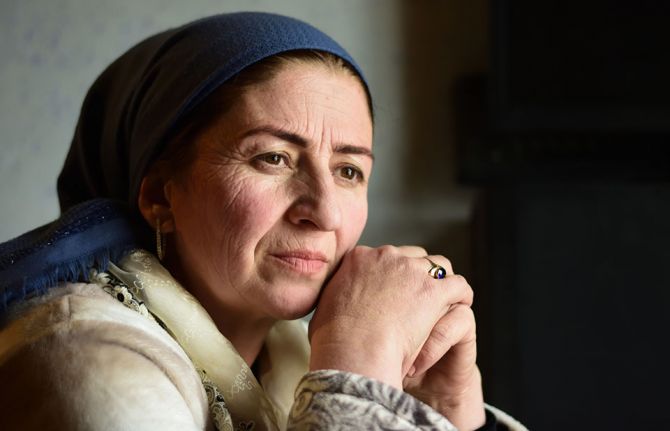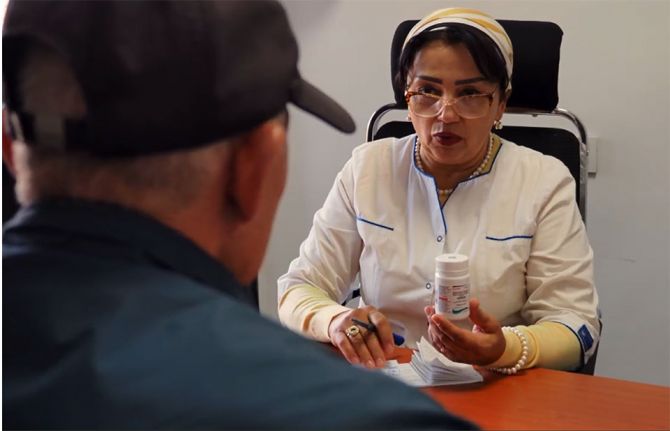

Feature Story
“We must move forward, only forward”
25 February 2021
25 February 2021 25 February 2021Malohat Sharipova, pictured above, teaches in a primary school in Bohtar, Tajikistan, but in her spare time she works as an outreach worker for AFIF, a nongovernmental organization that helps people living with HIV, tuberculosis and key populations.
AFIF works closely with the regional AIDS clinics, providing outreach workers who support and work with people living with and affected by HIV. During the COVID-19 pandemic, AFIF’s outreach workers have provided people living with HIV with three-month supplies of antiretroviral medicines, food and personal protective equipment, including antiseptic, masks and gloves.
The outreach workers are trained to carry out screening to detect tuberculosis and hepatitis in people living with HIV and injecting drug users. “It is necessary to ask 10 to 12 questions on HIV and tuberculosis developed by specialists to determine the need for further diagnosis. If there are symptoms, a person is advised to undergo timely testing, either at the nearest medical centre or using a kit for self-testing, which we provide,” said Ikram Ibragimov, the Director of AFIF.
AFIF’s activities are supported by the Ministry of Health of Tajikistan and conducted within the UNAIDS Regional Cooperation Programme for Technical Assistance for HIV and Other Infectious Diseases in the Commonwealth of Independent States, funded by the Russian Federation. Since the beginning of the project in 2019, about 7500 people have undergone community-based testing.
Ms Sharipova has four children, two daughters who are married and have left home, an older son who works in another city and her youngest son, who is in the 11th grade in school.
“In 2010, my husband was admitted to hospital. Before that, he had been complaining of abdominal pain for a long time. I tried to persuade him to visit a doctor, but he didn’t. He was hospitalized when it got bad, was diagnosed with liver cirrhosis and died soon after. I got a call from the hospital, and they told me to get tested for HIV.”
“When they told me that I had HIV, I thought, “Thank God I'm still alive, I can walk and work.” After my husband’s death I needed to raise my children, support my mother-in-law, who I loved like a mother.”
She has been taking antiretroviral therapy since 2010. “I feel fine. Previously, it was necessary to take the pills strictly twice a day. Now doctors have prescribed a different scheme, so I can take medicine only once a day. I need to stay healthy for my children and be able to help them. I do not talk widely about my diagnosis, but I don’t hide it. I think I was seen by many at HIV prevention events and trainings.”
Ms Sharipova leads a group for women—“We have female consultants working with women and men work with men. When people first learn about their HIV-positive status, they usually feel confused and scared, do not know what to do next. We talk to them, invite them to our self-help groups, explain the therapy, the future. Sometimes it is challenging to work with them, but I always say: we must move forward, only forward.”
Photography: Nazim Kalandarov/UNAIDS
Our work
Region/country
Related
 Women, HIV, and war: a triple burden
Women, HIV, and war: a triple burden

12 September 2025


